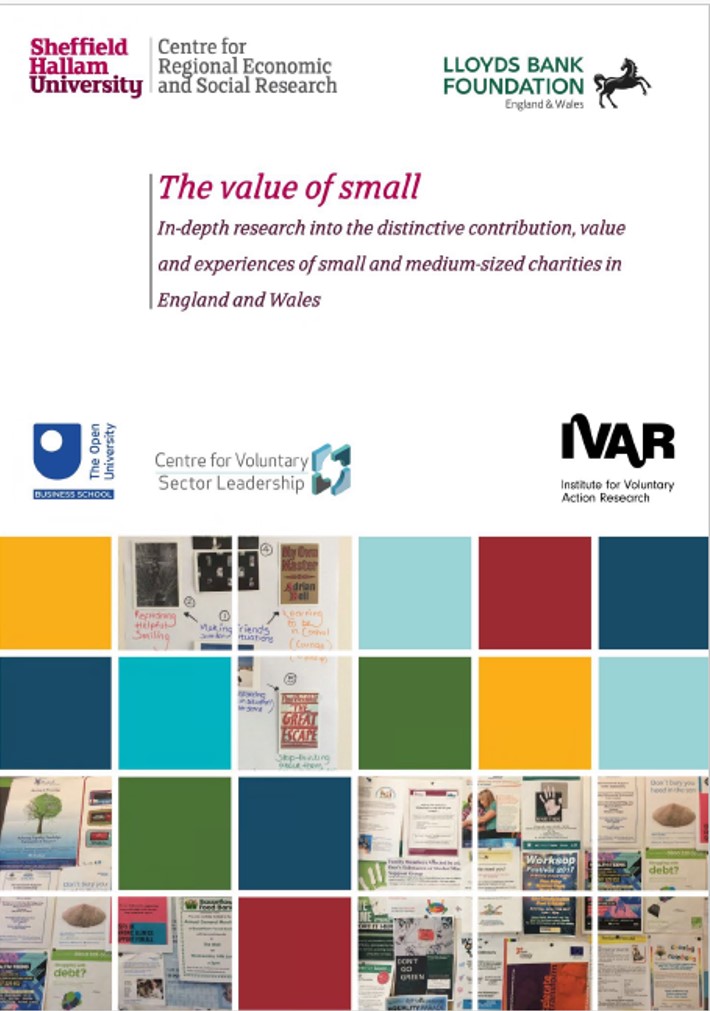Home »

The value of small
This research shows that smaller local charities combine three distinctive features in how they support people and communities, which sets them apart from both public-sector providers or larger charities:
- Who smaller charities serve and what they do: through plugging gaps left by other organisations; being the ‘first responders’ to people in crisis, and for creating safe, familiar spaces where people can receive practical support or be quickly linked to other local services because of the charity’s local networks. Examples in the research included the experiences of homeless people and refugees who were not being helped by public services but got the support they needed from small and local charities.
- How smaller charities work: building person-centred relationships with clients for longer; being known for their ‘open door approach’ and understanding of local issues, and for being quick to make decisions because of flatter management structures. and reflecting more closely the diversity of their local communities through their staff and volunteers. Examples in the research included charities providing mental health services that were more welcoming and engaging for people who were turned away from public services because the issues they were facing were too complex or didn’t fit those organisations’ missions.
- The role smaller charities play in their communities: using their well-established and far-reaching networks to act as the ‘glue’ that holds communities together. Examples in the research include charities helping communities cope better with funding cuts and service fragmentation. This combination of distinctive features in smaller charities is greater than the sum of their parts and offers additional benefits including: individual value for their clients, such as building confidence and self-esteem to help them prepare for and secure employment; economic value through charities buying goods and services locally and added value through recruiting more volunteers than larger charities and bringing in new funding from trusts and others which typically can triple the income they received from the public sector.
The Value of Small was commissioned by Lloyds Bank Foundation for England and Wales and conducted by an independent research team comprising the Centre for Regional Economic and Social Research (CRESR) at Sheffield Hallam University; IVAR and the Centre for Voluntary Sector Leadership at the Open University.

